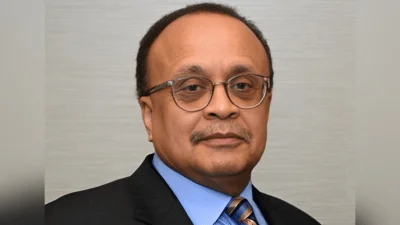Wirepoints Founder and Executive Editor Mark Glennon
Wirepoints Founder and Executive Editor Mark Glennon
The College Illinois prepaid tuition program is barreling toward a state taxpayer bailout and that should surprise no one, the founder of an online news outlet said during a recent interview.
"Given what we know about politicians running pensions, is it any surprise that politicians mismanaged this program?" Wirepoints Founder and Executive Editor Mark Glennon told Prairie State Wire. "What's striking is the enormity of their incompetence. Only about 77,000 student contracts are outstanding, yet a stunning $500 million will be needed to bail them out."
College Illinois is one of several prepaid tuition programs for higher education in the state. College Illinois is not affiliated with Illinois’ 529 college savings programs Bright Start and Bright Directions.

| FreeImages
The idea behind College Illinois seemed a good one: to allow parents to get ahead of rising tuition costs by paying in advance, but it hasn't worked out that way. The state has twice closed the program to new investors, including the 2011-2012 sales year when the program fell $560 million short.
The lack of a sizable number of investors bears part of the blame but it's not the only reason, Glennon told Prairie State Wire.
"We should also note one cause of this program's failure, which was that money taken in was used to pursue social and political goals," he said. "Those social justice investments included ShoreBank, which went bust. We are increasingly seeing pressure on Illinois pensions and other funds to invest for social goals. Big mistake."
State lawmakers have tried working with representatives from College Illinois administrator Illinois Student Assistance Commission to figure something out, but a solution has been elusive. In January of last year, Illinois State Rep. Brad Halbrook (R-Shelbyville) told Prairie State Wire that a taxpayer bailout of the prepaid tuition program was likely.
"There really is no simple fix to the program," Halbrook, who represents the House 102nd District and who in 2012 turned down enrollment in the state's General Assembly Retirement System pension, told Prairie State Wire at the time. "The stability of the program has been in question for far too long. The only way it can continue is for people to invest in it."
Bailout predictions by Halbrook and others are coming to pass as the state has few other options, Glennon said.
"The state has no way to avoid the bailout," he said. "Aside from any moral or ethical aspects, I think the state would lose on a fraud lawsuit if the contracts weren’t honored. That's because parents were led to believe when they invested that the state stood behind the contracts. I don't think the state could - or should - just rescind the contracts and return the money to savers. The time value of their money extends over a long period and savers have a valid right to get what they were promised."
That won't come cheap, Glennon said.
"The cost of the bailout will be spread over many future years but, just like state pensions, nobody has a plan showing how the state can honor all its obligations," he said. "In this case, however, I would hope that the state, if necessary, would force the universities to honor the contracts by reducing tuition to match whatever cash is available. After all, the universities are really state entities, so it would make sense to expect them to help honor the contracts if necessary."
Glennon was a venture capital investment manager and winner of Illinois Venture Capital Association's Fellows Medal for outstanding contributions in his field, according to his biography at Wirepoints. He previously was an Innovate Illinois Advisory Council co-chair and practices law specializing in debt transactions, turnarounds, bankruptcy and venture capital. He holds a bachelor's degree in economics and political science from Northwestern University and a law degree from the University of Minnesota Law School.






 Alerts Sign-up
Alerts Sign-up